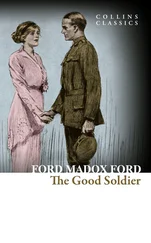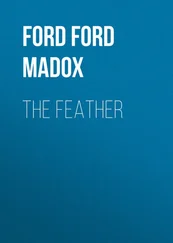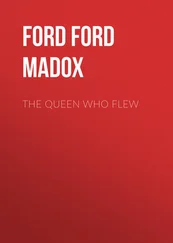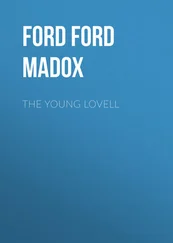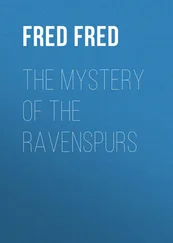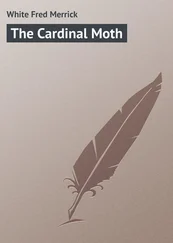Ford Ford - The Inheritors
Здесь есть возможность читать онлайн «Ford Ford - The Inheritors» — ознакомительный отрывок электронной книги совершенно бесплатно, а после прочтения отрывка купить полную версию. В некоторых случаях можно слушать аудио, скачать через торрент в формате fb2 и присутствует краткое содержание. Жанр: foreign_prose, на английском языке. Описание произведения, (предисловие) а так же отзывы посетителей доступны на портале библиотеки ЛибКат.
- Название:The Inheritors
- Автор:
- Жанр:
- Год:неизвестен
- ISBN:нет данных
- Рейтинг книги:4 / 5. Голосов: 1
-
Избранное:Добавить в избранное
- Отзывы:
-
Ваша оценка:
- 80
- 1
- 2
- 3
- 4
- 5
The Inheritors: краткое содержание, описание и аннотация
Предлагаем к чтению аннотацию, описание, краткое содержание или предисловие (зависит от того, что написал сам автор книги «The Inheritors»). Если вы не нашли необходимую информацию о книге — напишите в комментариях, мы постараемся отыскать её.
The Inheritors — читать онлайн ознакомительный отрывок
Ниже представлен текст книги, разбитый по страницам. Система сохранения места последней прочитанной страницы, позволяет с удобством читать онлайн бесплатно книгу «The Inheritors», без необходимости каждый раз заново искать на чём Вы остановились. Поставьте закладку, и сможете в любой момент перейти на страницу, на которой закончили чтение.
Интервал:
Закладка:
"Read Churchill's letter?" he asked, in passing. "I'll tell you all about it in a minute." I don't know what he expected me to do with it – kiss the postage stamp, perhaps.
At the same time, it was pleasant to sit there idle in the midst of the hurry, the breathlessness. I seemed to be at last in contact with real life, with the life that matters. I was somebody, too. Fox treated me with a kind of deference – as if I were a great unknown. His "you literary men" was pleasing. It was the homage that the pretender pays to the legitimate prince; the recognition due to the real thing from the machine-made imitation; the homage of the builder to the architect.
"Ah, yes," it seemed to say, "we jobbing men run up our rows and rows of houses; build whole towns and fill the papers for years. But when we want something special – something monumental – we have to come to you."
Fox came in again.
"Very sorry, my dear fellow, find I can't possibly get a moment for a chat with you. Look here, come and dine with me at the Paragraph round the corner – to-night at six sharp. You'll go to Churchill's to-morrow."
The Paragraph Club, where I was to meet Fox, was one of those sporadic establishments that spring up in the neighbourhood of the Strand. It is one of their qualities that they are always just round the corner; another, that their stewards are too familiar; another, that they – in the opinion of the other members – are run too much for the convenience of one in particular.
In this case it was Fox who kept the dinner waiting. I sat in the little smoking-room and, from behind a belated morning paper, listened to the conversation of the three or four journalists who represented the members. I felt as a new boy in a new school feels on his first introduction to his fellows.
There was a fossil dramatic critic sleeping in an arm-chair before the fire. At dinner-time he woke up, remarked:
"You should have seen Fanny Ellsler," and went to sleep again.
Sprawling on a red velvet couch was a beau jeune homme , with the necktie of a Parisian-American student. On a chair beside him sat a personage whom, perhaps because of his plentiful lack of h's, I took for a distinguished foreigner.
They were talking about a splendid subject for a music-hall dramatic sketch of some sort – afforded by a bus driver, I fancy.
I heard afterward that my Frenchman had been a costermonger and was now half journalist, half financier, and that my art student was an employee of one of the older magazines.
"Dinner's on the table, gents," the steward said from the door. He went toward the sleeper by the fire. "I expect Mr. Cunningham will wear that arm-chair out before he's done," he said over his shoulder.
"Poor old chap; he's got nowhere else to go to," the magazine employee said.
"Why doesn't he go to the work'ouse," the journalist financier retorted. "Make a good sketch that, eh?" he continued, reverting to his bus-driver.
"Jolly!" the magazine employee said, indifferently.
"Now, then, Mr. Cunningham," the steward said, touching the sleeper on the shoulder, "dinner's on the table."
"God bless my soul," the dramatic critic said, with a start. The steward left the room. The dramatic critic furtively took a set of false teeth out of his waistcoat pocket; wiped them with a bandanna handkerchief, and inserted them in his mouth.
He tottered out of the room.
I got up and began to inspect the pen-and-ink sketches on the walls.
The faded paltry caricatures of faded paltry lesser lights that confronted me from fly-blown frames on the purple walls almost made me shiver.
"There you are, Granger," said a cheerful voice behind me. "Come and have some dinner."
I went and had some dinner. It was seasoned by small jokes and little personalities. A Teutonic journalist, a musical critic, I suppose, inquired as to the origin of the meagre pheasant. Fox replied that it had been preserved in the back-yard. The dramatic critic mumbled unheard that some piece or other was off the bills of the Adelphi. I grinned vacantly. Afterward, under his breath, Fox put me up to a thing or two regarding the inner meaning of the new daily. Put by him, without any glamour of a moral purpose, the case seemed rather mean. The dingy smoking-room depressed me and the whole thing was, what I had, for so many years, striven to keep out of. Fox hung over my ear, whispering. There were shades of intonation in his sibillating. Some of those "in it," the voice implied, were not above-board; others were, and the tone became deferential, implied that I was to take my tone from itself.
"Of course, a man like the Right Honourable C. does it on the straight, … quite on the straight, … has to have some sort of semi-official backer… In this case, it's me, … the Hour . They're a bit splitty, the Ministry, I mean… They say Gurnard isn't playing square … they say so." His broad, red face glowed as he bent down to my ear, his little sea-blue eyes twinkled with moisture. He enlightened me cautiously, circumspectly. There was something unpleasant in the business – not exactly in Fox himself, but the kind of thing. I wish he would cease his explanations – I didn't want to hear them. I have never wanted to know how things are worked; preferring to take the world at its face value. Callan's revelations had been bearable, because of the farcical pompousness of his manner. But this was different, it had the stamp of truth, perhaps because it was a little dirty. I didn't want to hear that the Foreign Minister was ever so remotely mixed up in this business. He was only a symbol to me, but he stood for the stability of statesmanship and for the decencies that it is troublesome to have touched.
"Of course," he was proceeding, "the Churchill gang would like to go on playing the stand-off to us. But it won't do, they've got to come in or see themselves left. Gurnard has pretty well nobbled their old party press, so they've got to begin all over again."
That was it – that was precisely it. Churchill ought to have played the stand-off to people like us – to have gone on playing it at whatever cost. That was what I demanded of the world as I conceived it. It was so much less troublesome in that way. On the other hand, this was life – I was living now and the cost of living is disillusionment; it was the price I had to pay. Obviously, a Foreign Minister had to have a semi-official organ, or I supposed so… "Mind you," Fox whispered on, "I think myself, that it's a pity he is supporting the Greenland business. The thing's not altogether straight. But it's going to be made to pay like hell, and there's the national interest to be considered. If this Government didn't take it up, some other would – and that would give Gurnard and a lot of others a peg against Churchill and his. We can't afford to lose any more coaling stations in Greenland or anywhere else. And, mind you, Mr. C. can look after the interests of the niggers a good deal better if he's a hand in the pie. You see the position, eh?"
I wasn't actually listening to him, but I nodded at proper intervals. I knew that he wanted me to take that line in confidential conversations with fellows seeking copy. I was quite resigned to that. Incidentally, I was overcome by the conviction – perhaps it was no more than a sensation – that that girl was mixed up in this thing, that her shadow was somewhere among the others flickering upon the sheet. I wanted to ask Fox if he knew her. But, then, in that absurd business, I did not even know her name, and the whole story would have sounded a little mad. Just now, it suited me that Fox should have a moderate idea of my sanity. Besides, the thing was out of tone, I idealised her then. One wouldn't talk about her in a smoking-room full of men telling stories, and one wouldn't talk about her at all to Fox.
Читать дальшеИнтервал:
Закладка:
Похожие книги на «The Inheritors»
Представляем Вашему вниманию похожие книги на «The Inheritors» списком для выбора. Мы отобрали схожую по названию и смыслу литературу в надежде предоставить читателям больше вариантов отыскать новые, интересные, ещё непрочитанные произведения.
Обсуждение, отзывы о книге «The Inheritors» и просто собственные мнения читателей. Оставьте ваши комментарии, напишите, что Вы думаете о произведении, его смысле или главных героях. Укажите что конкретно понравилось, а что нет, и почему Вы так считаете.

